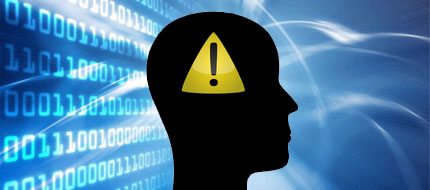The Paralysis of Knowledge
Posted on Nov 21, 2013 by Trevor in Misc

I recently started reading a new book and the opening paragraph was an unexpected stunner:
The most merciful thing in the world, I think, is the inability of the human mind to correlate all its contents. We live on a placid island of ignorance in the midst of black seas of infinity, and it was not meant that we should voyage far. The sciences, each straining in its own direction, have hitherto harmed us little; but some day the piecing together of dissociated knowledge will open up such terrifying vistas of reality and of our frightful position therein, that we shall either go mad from the revelation or flee from the deadly light into the peace and safety of a new dark age.
– H.P. Lovecraft, The Call of Cthulhu
Is knowledge really that dangerous? Are the little worlds that each one of our mortal brains have constructed really that fragile? I suppose it’s possible, given the staggering amount of knowledge that we lack. Joseph Smith is quoted as saying:
I have tried for a number of years to get the minds of the Saints prepared to receive the things of God; but we frequently see some of them, after suffering all they have for the work of God, will fly to pieces like glass as soon as anything comes that is contrary to their traditions: they cannot stand the fire at all.
– History of the Church, 6:184–85
We humans seek comfort, that’s for sure. We tend to reject new information that clashes with the narratives we base our lives upon. A compelling study on the relationship between our tightly-held beliefs and our ability to think rationally about conflicting data revealed that people’s ability to do math problems deteriorated if those answers suggested that their own political views were wrong.
One of my friends once shared a profound thought about how a lack of knowledge (or at least a lack of fully “correlated” knowledge, to use Lovecraft’s term) helps us go on living our lives in bliss. He said that if we were somehow able to completely internalize the high degree of suffering that happens in this would, it would cripple us.
Knowledge Begets…Self Doubt?
On a similar note, have you ever heard of the Dunning-Kruger effect? Its Wikipedia article defines it as “a cognitive bias in which unskilled individuals suffer from illusory superiority, mistakenly rating their ability much higher than average.” In other words, those who are least intelligent or of lesser abilities actually feel more confident in their knowledge and skill. Startlingly, though, the inverse applies to those who are more intelligent or of greater abilities. “Actual competence may weaken self-confidence”, so it goes.
Many others have pointed out this paradoxical relationship between knowledge and confidence, from Confucius (“Real knowledge is to know the extent of one’s ignorance.”) to Charles Darwin (“Ignorance more frequently begets confidence than does knowledge.”)
So What Now?
Even though I can sympathize with all these sentiments, I’m not sure it’s enough to discourage me from an insatiable (and naive?) pursuit of knowledge, however. Some couple more statements come to mind.
Jesus is reported to have assured his followers that “the truth will set you free.” And John Stewart Mill famously quipped, “it is better to be a human being dissatisfied than a pig satisfied; better to be Socrates dissatisfied than a fool satisfied”.
I love learning new things, even if that learning makes me even more cognizant of just how much more there is to know. Learning about religion and faith makes me more mature and robust spiritually, even if it has certainly wrought a spiraling decrease in the confidence I have in my spiritual knowledge. Learning about parenting techniques makes me feel like a better parent even as it makes me feel like I am less in control. But the trade-offs ultimately feel worth it. And sometimes I don’t encounter the negative effects of new-found knowledge. For instance, learning programming and IT makes me better and more confident at my job. Learning about the science behind how the world works makes me even more fascinated by it.

